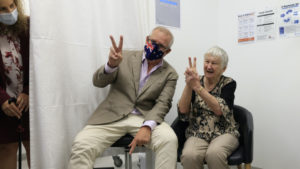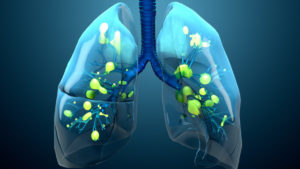Mesoblast (ASX:MSB) shares have plunged, after a huge setback to its clinical trial testing the use of its stem-cell infusion on severely ailing US COVID-19 patients.
An independent committee monitoring the study recommended that the trial complete with the currently enrolled 223 patients, rather than the 300 planned.
There were no safety concerns but the study was not likely to achieve its primary endpoint of a 43 per cent reduction in death at 30 days among COVID-19 patients on ventilators, the Data Safety Monitoring Board advised.
This doesn’t mean – necessarily – that Mesoblast’s remestemcel-L infusion isn’t saving lives, and more analysis of the trial’s secondary endpoints may in fact show it has valuable benefits.
But that’s probably not much consolation to the bagholders who bought MSB shares in September, when they were over $5.
At 11.52am on Friday, Mesoblast shares were down $1.37, or 36.4 per cent, to $2.40 — their lowest level since late April.
Mesoblast shares also took a dive earlier this week after a readout from a Phase III study of a different Mesoblast stem cell treatment treating patients with advanced chronic heart failure.
The study failed to meet its primary endpoint of preventing hospitalisation, although it managed to reduce death by 60 per cent in patients with mild symptoms.
Regarding the COVID study involving patients with moderate to severe acute respiratory distress syndrome (ARDS), Mesoblast said the trial had not yet accrued data on secondary endpoints – including days off mechanical ventilation, overall survival, days in extensive care and organ damage.
“None of these were included in the interim analysis,” Mesoblast said.
Not necessarily a failure?
In its press release, Mesoblast suggested that the reason why the trial was looked likely to fail to meet its primary endpoint had to do with how the trial was statistically “powered”.
When many COVID patients on ventilators were dying of ARDS early in the pandemic, it apparently looked reasonable to investigators that a 300-patient study would be able to discern whether remestelcel-L could indeed deliver a 43 per cent survival benefit.
But Mesoblast said better management of patients on ventilators and experimental therapies “may have changed the natural course of ventilated patients and reduced overall mortality rates during the trial, compared to the early stages of the pandemic.”
If that’s true, then a larger study would be needed to tell if remestemcel-L could deliver such substantial lifesaving benefits.
Mesoblast has licensed remestmcel-L to Novartis, with a focus on non-COVID ARDS, and the two companies plan to analyse the study further to guide their decisions on a development program.
You might be interested in












